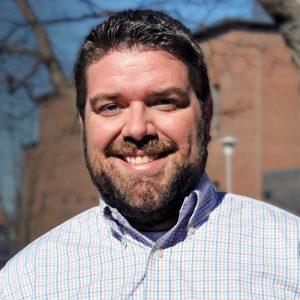"Intensive Alternative Family Treatment (IAFT®) has been given a CEBC Scientific Rating of "3 - Promising Research Evidence" in the Higher Levels of Placement and Placement Stabilization Programs topic areas on the CEBC website."
Rapid Resource for Families continues to partner with the Jordan Institute for Families in the School of Social Work at UNC Chapel Hill for ongoing evidence-based research. Dr. Paul Lanier is leading the Random Control Trial funded by a grant for a three-year study by The Duke Endowment.
- Information sheet on the RCT is available under our evidenced based upload section
| Title | Size | Date added | Date modified | Download |
|---|---|---|---|---|
| RRFF-Logic-Model-Final | 84.47 KB | 20-09-2022 | 20-09-2022 | DownloadPreview |
| RRFF-FFTA-2022-poster | 355.00 KB | 20-09-2022 | 20-09-2022 | Download |
| Network EBP Announcement | 357.88 KB | 22-09-2022 | 22-09-2022 | DownloadPreview |
| Lanier_et_al-2023-Administration_and_Policy_in_Mental_Health_and_Mental_Health_Services_Research | 706.17 KB | 12-05-2023 | 12-05-2023 | DownloadPreview |
| IAFT Randomized Control Trial Information Sheet | 141.20 KB | 22-03-2023 | 22-03-2023 | DownloadPreview |
| 2019 11 19 Social Marketing Report-RRFF | 1.08 MB | 22-09-2022 | 22-09-2022 | DownloadPreview |
Rose, R., Chung, G., & Lanier, P. (2020). Effectiveness of Intensive Alternative Family Treatment on reducing re-admissions to psychiatric residential treatment facilities. Journal of Emotional and Behavioral Disorders, 29(2), 113-124. https://doi.org/10.1177/1063426620980700
Lanier, P., Chung, G., & Rose, R. (2021). A quasi-experimental study of Intensive Alternative Family Treatment to prevent entry to psychiatric residential treatment. Child and Adolescent Social Work Journal, 39, 303-311. https://doi.org/10.1007/s10560-021-00758-9
Lanier, P., Rose, R. & Domino, M. (2023). Comparing Medicaid Expenditures for Standard and Enhanced Therapeutic Foster Care Administration and Policy in Mental Health and Mental Health Services Research.https://doi.org/10.1007/s10488-023-01270-1 https://rdcu.be/dbMl7

Paul Lanier
Paul Lanier, MSW, Ph.D. is an Associate Professor in the School of Social Work at the University of North Carolina at Chapel Hill, where he teaches courses in social policy and program evaluation. He is also a research fellow at the UNC Cecil G. Sheps Center for Health Services research and the UNC Injury Prevention Research Center. Dr. Lanier received his doctoral degree from the Brown School at Washington University in St. Louis. His current research focuses on developing, evaluating, and scaling-up evidence-based prevention programs in child welfare, mental health, and early childhood systems.
